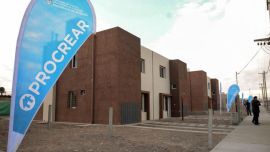The Organisation of American States (OAS) has adopted a resolution condemning human rights abuses committed by Nicaraguan police and armed pro-government civilians since protests against President Daniel Ortega began in mid-April.
The resolution, which was adopted 21-3 with seven abstentions, also criticised the harassment of Roman Catholic bishops.
Catholic officials who have been mediating stalled talks on finding a peaceful solution to the stand-off and have criticised Ortega's government over killings have suffered at least three recent attacks.
The OAS resolution by Argentina, Brazil, Canada, Chile, Colombia, Costa Rica, Mexico, Peru and the United States called on Ortega to support an electoral calendar agreed upon during the dialogue process.
Ortega has rejected demands for early elections and calls those seeking his exit "coup mongers."
On Monday, the crisis was also addressed at the meeting of European, Latin American and Caribbean foreign ministers in Brussels. Thirteen countries at the Community of Latin American and Caribbean States (CELAC) summit issued a joint statement calling for "immediate cessation of acts of violence" and the "dismantling of paramilitary groups" in Nicaragua.
Against resistance
In the past week, Ortega's government and supporters have moved aggressively against the remaining resistance, including dislodging students from the National Autonomous University of Nicaragua and pushing into a rebel neighbourhood in the city of Masaya.
On Wednesday, Nicaraguan Foreign Minister Denis Moncada blasted the OAS for adopting the resolution, calling it "illegal, illegitimate and unfair."
"We have working institutions, a rule of law, a Constitution," he said minutes before the vote. "That's why it is not right that this permanent council becomes a sort of court that no one has authorised nor given power to pass judgment on Nicaragua."
Moncada said the government is subject "to attacks from terrorist groups to overthrow a legitimate government."
Managua's auxiliary Roman Catholic bishop, Silvio José Báez, cheered the resolution via Twitter.
"Thanks brother countries of the American continent that have joined in solidarity with the pain and fight of the Nicaraguan people!" he wrote.
On Tuesday, Nicaraguan government forces retook the symbolically important neighbourhood of Monimbo in Masaya southeast of the capital. It had recently become a centre of resistance to Ortega's government.
On Wednesday, Azucena López García buried her son Erick Antonio López, a college student shot defending a barricade when police and armed civilians surrounded and gunned their way into Monimbo. Police commissioner Ramón Avellán has said he received orders to take control of the city by any means necessary.
"Monimbo is devastated," López García said tearfully at her son's graveside. "The youth are fleeing their homes."
She said she was burying her family member, but other mothers do not know where their sons were taken.
Paramilitaries?
Pick-up truck loads of pro-government civilians masked and armed with rifles and shotguns drove through the streets of Monimbo honking their horns and waving the red-and-black flag of the ruling Sandinista National Liberation Front in celebration.
One man wearing a black ski mask and blue T-shirt denied that he and others were government backed paramilitaries, though the heavily armed men moved freely in front of national police patrols.
"I'm a normal resident," he said, declining to give his name. "The very same residents had to free ourselves."
While the OAS held its session, a bipartisan group of 10 US senators introduced legislation that seeks to impose sanctions on Nicaraguan government officials responsible for protester deaths, human rights violations and acts of corruption. It also calls for a negotiated political solution to the crisis.
"We can't stay silent as Daniel Ortega and Rosario Murillo target their own people, as evidenced by the images of students being shot while seeking refuge inside of a church," said US Senator Bob Menendez, the top Democrat on the Senate Foreign Relations Committee and one of the bill's sponsors.
In Mexico City, Pilar Sanmartín, a crisis researcher with Amnesty International, called on Ortega's government to seek a peaceful resolution through dialogue. "But in a sincere way, an honest way."
She said nearly 2,000 people have been wounded in fighting during the past three months since pension cuts were announced and then quickly withdrawn in mid-April.
The Nicaraguan Pro-Human Rights Association had tallied 351 deaths between April 19 and July 10. The government says more than 200 people have been killed since the unrest began.
- AP

























Comments